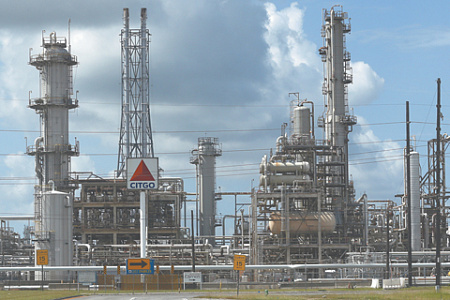
*Editor’s note: On March 4, 2022, Russia enacted a law that criminalizes public opposition to, or independent news reporting about, the war in Ukraine. The law makes it a crime to call the war a “war” rather than a “special military operation” on social media or in a news article or broadcast. The law is understood to penalize any language that “discredits” Russia’s use of its military in Ukraine, calls for sanctions or protests Russia’s invasion of Ukraine. It punishes anyone found to spread “false information” about the invasion with up to 15 years in prison.
The Americans are reimposing sanctions on Venezuela.
The U.S. will not renew the general license that initially eased sanctions on the Venezuelan oil and gas sector because Venezuelan President Nicolás Maduro has failed to hold free and competitive elections in his country. This decision could cost billions in financial losses and drive more Venezuelans to leave their country. Washington has also extended a license through August protecting PDVSA-owned oil refiner Citgo from creditors seeking to recoup debts.* However, it is possible that debt defaults may prompt Citgo to change ownership in July.
The State Department told Reuters that the U.S. will not renew the license when it expires on April 18. The White House has justified this, saying Maduro has failed to meet his promises to hold free presidential elections. Maria Corina Machado, the leading opposition candidate, who could potentially beat Maduro, was blocked from running. The same thing happened to 80-year-old academic economist Corina Yoris, who stood in for opposition leader Machado.
While Washington’s decision could potentially worsen the migrant crisis ahead of the national elections, it would have been wrong to let Maduro get away with failing to make good on his commitments. If the U.S. had renewed Venezuela’s license, the American people would have questioned the consistency of their government’s policies.
Caracas also confirmed that it met with U.S. officials in Mexico City on April 9.
The general license gave Venezuelans an additional $740 million in oil sales between last October and March. If the U.S. reimposes sanctions on Venezuela, Caracas could lose $2 billion in oil revenues by the end of 2024. The U.S. and Venezuela resumed talks about possible oil and gas sanctions relief in the fall of 2022 when the Russia-Ukraine conflict had triggered a global energy crisis. Due to sanctions on Venezuela, Citgo, deeply indebted to other countries including Russia, faced significant financial strain. The company currently plans to sell its shares in July to repay its debts. Accordingly, the U.S. Treasury extended a license protecting Citgo from creditors through August.
Andrey Schelchkov, a senior research fellow of the Institute of World History, told Nezavisimaya Gazeta there are two main reasons why Washington decided not to renew Venezuela’s license.
First, Venezuela hasn’t substantially improved the oil market situation, despite facing lighter sanctions than Russia. Production capacities, which have sharply declined in recent years, are insufficient to mark a significant increase in oil extraction. Oil prices increased despite the easing of sanctions, due in part to tensions in the Middle East.
Second, Maduro has indeed failed to fulfill his commitments. Opposition candidates were barred from elections, and many regime opponents were not only forced to flee the country but also to seek refuge in embassies, including embassies in Argentina and Chile.
“It is possible that opposition leaders were already under surveillance since they opted not simply to leave, say, for Colombia, but instead only managed to reach embassies. Many of Maduro’s opponents are already behind bars,” Schelchkov said.
He added that while it may not be economically beneficial for Washington to reintroduce sanctions, the financial losses are not as important as the need to woo Latino voters by taking a firm stand with Caracas.
Shchelchkov believes that “Latinos who have immigrated to the United States are by no means sympathetic to socialist ideals. There are far more of them than Palestinians, and the White House will fight for their vote. Therefore, Washington cannot let Maduro’s actions go unanswered.”
*Editor’s note: PDVSA refers to Petróleos de Venezuela, S.A., the Venezuelan state-owned oil and natural gas company.

Leave a Reply
You must be logged in to post a comment.